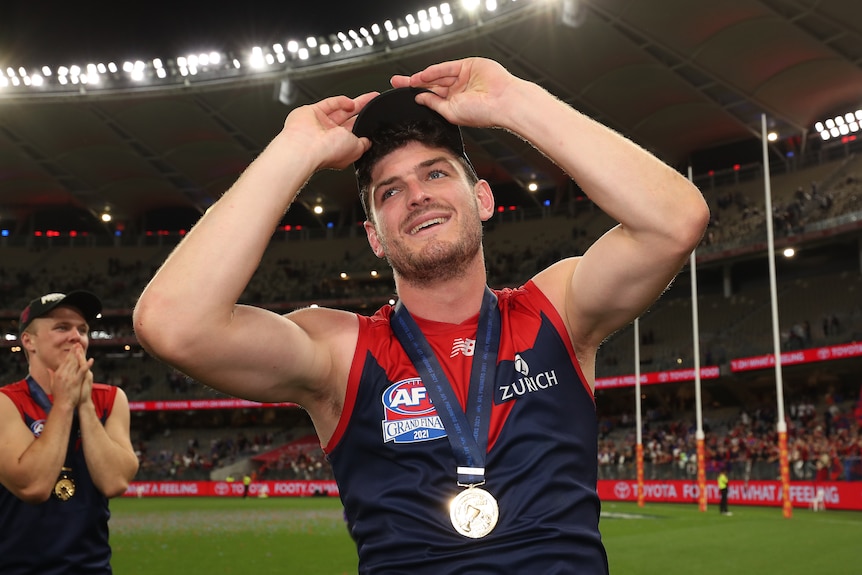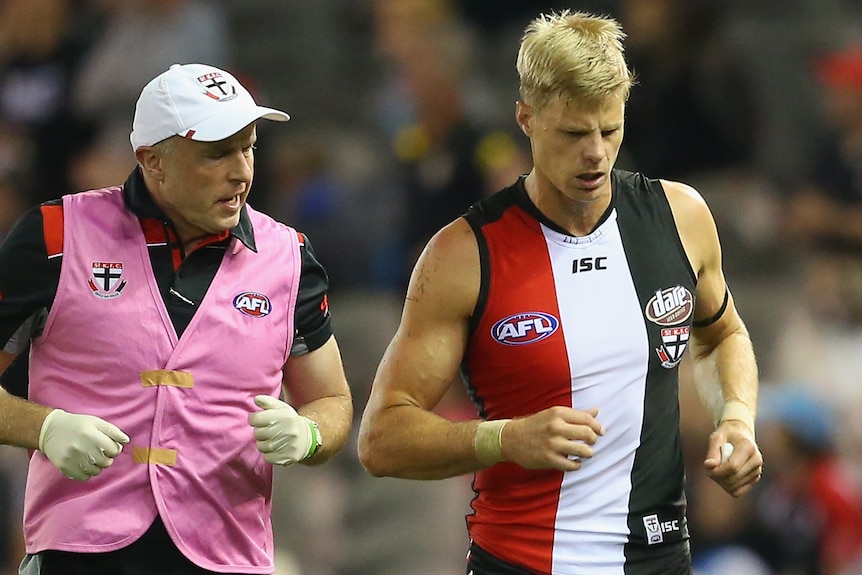St Kilda legend Nick Riewoldt has shed light on what he believes would have been an “agonizing” decision by Nathan Murphy to retire due to concussion issues, and praised the former Collingwood defender for the decision.
Murphy announced his retirement on Tuesday after receiving advice from the AFL’s concussion medical panel over a head knock he suffered in last year’s grand final.
The 24-year-old’s retirement followed that of Melbourne’s Angus Brayshaw in February, after the Demons star was similarly advised not to continue his career due to repeated concussions.
Riewoldt said both players’ decisions are a sign the AFL is moving into a new era where there is less emphasis on players putting themselves in danger on the field and more emphasis on safety.
“I guess it’s a reflection of how far this movement, if you want to call it that, has come,” he said. Football talk at LiSTNR.
“I would love to have been a fly on the wall and attended some of those conversations and understood how inflexible the medical professionals were and whether they still left the call to Nathan Murphy.
“My feeling would be that he has been a bit reluctant to accept it, so the advice would have been very, very strong.
“I wish more [of] that message begins to sound. “So the conversations we’re having about playing head-on football are starting to become less relevant and important because players are just adapting.”
Riewoldt was known for his bravery during his illustrious 336-game career for St Kilda.
He retired in 2017 as the all-time marks leader in VFL/AFL history, and perhaps his most famous mark was an example of his relentless attack on football.
The Saints were facing Sydney in Round 11 of 2004, when Riewoldt chased down a kick from teammate Robert Harvey in midfield, ran back in the flight of the ball and brought down teammate Stephen Milne as he took the mark. chest.
Riewoldt’s courage was praised at the time and his mark is one of the most iconic in league history, but it’s the type of play we’ll likely see less and less of in future generations.
That’s not necessarily a bad thing.
While Murphy’s decision to prioritize his post-football life seems simple to the average person, Riewoldt explained how difficult those decisions are for players, who often struggle to see the importance of having a productive life beyond their football careers. .
“To sit here with the benefit of experience and be 40 and have a family and have all those things is a no-brainer, but not for young people right now,” he said.
“I remember playing in some big games and being injected to play in big games and you know, making comments like ‘I don’t care what the rest of my life is going to be like. I just want to get up and play this game.’ I mean, when you’re In this when you’re young, it’s agonizing.
“Credit to them [Murphy and Brayshaw] because it’s a brave decision and they should be applauded for pioneering this kind of self-preservation movement, if you will.”

Essendon coach Brad Scott, who was AFL general manager of football before joining the Bombers at the end of 2022, said concussions were the “number one priority” for the league during his tenure.
“I think it’s been moving forward this way for quite a long period of time,” he said.
“It’s obviously very sad news for [Murphy]Angus has been a very influential player. [Brayshaw] also. You don’t like it to happen to anyone.
“I probably have a different view than a lot of people. “When I was in the AFL, concussion was the biggest problem in the game.
“The resources being invested in that space are significant and it is being treated as the number one priority.
“I think that gives everyone in the game peace of mind that the best people are working on it. We just have a completely different attitude toward hits to the head than we did 20 or 30 years ago, which is a good thing. .Probably 20 to 30 years ago, these players wouldn’t retire because the advice would have been to just move on.
“We know that football is really important, but your life after football is more important.”
Brayshaw and Murphy’s retirements follow the recent concussion retirements of Hawthorn’s Max Lynch, Adelaide’s Paul Seedsman and West Coast’s Brad Sheppard.
While these calls have taken the AFL community by surprise, they are expected to become more common as the league continues to emphasize health over highlights.
Sports content to make you think… or allow you not to. A newsletter delivered every Friday.


